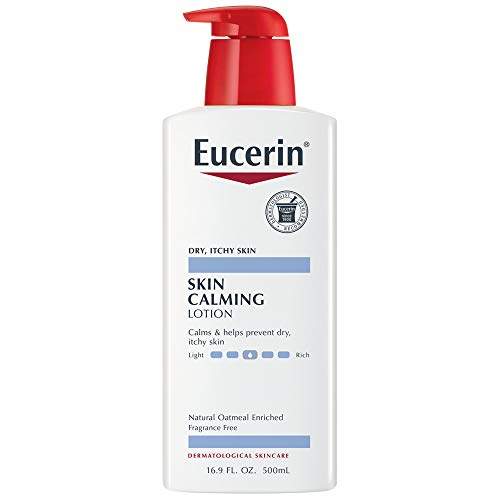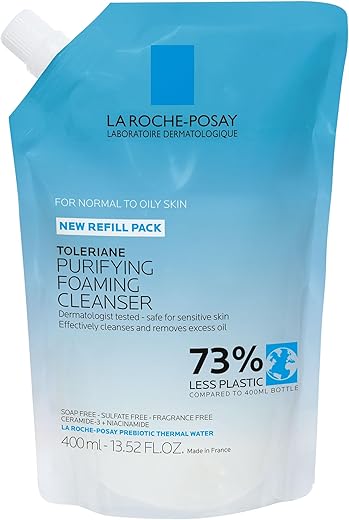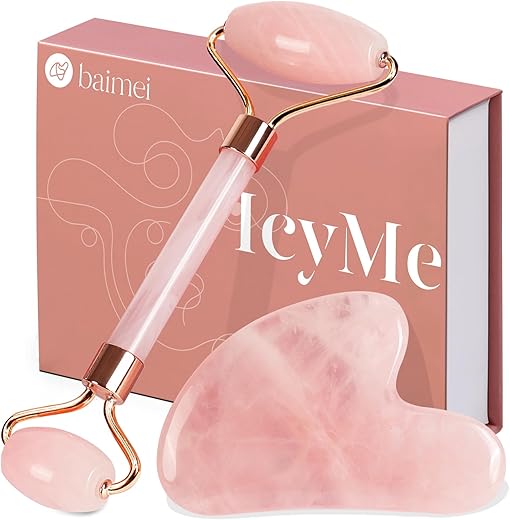
Is Facial Oil Suitable for Oily Skin? Debunking Common Misconceptions
Are you tired of dealing with oily skin? Do you believe that using facial oil will only make matters worse? If so, you’re not alone. Many people with oily skin avoid facial oil, fearing that it will exacerbate their already shiny complexion. However, what if I told you that there are misconceptions surrounding this skincare product? In this blog post, we will delve into the world of facial oil and its compatibility with oily skin. By debunking common misunderstandings, we hope to shed light on the benefits and considerations of incorporating facial oil into your skincare routine. So, let’s put our preconceived notions aside and embark on this journey together to find the truth about facial oil for oily skin.
Top-selling Facial Oils for Radiant Skin






Understanding Facial Oil
Facial oil has gained popularity in recent years as a skincare product that promises to nourish and hydrate the skin. However, many people are still unsure about what facial oil is and how it can benefit their skin. In this blog section, we will provide an in-depth understanding of facial oil, its composition, and how it interacts with the skin. We will also discuss the different types of facial oil available in the market and their potential benefits for various skin types.



What is Facial Oil?
Facial oil is a type of skincare product that is specifically formulated to provide moisture and nourishment to the skin. It is made up of a blend of natural oils that mimic the oils naturally produced by our skin, such as jojoba oil, argan oil, or rosehip oil. These oils are rich in essential fatty acids, vitamins, and antioxidants, which are beneficial for maintaining healthy skin.
Composition of Facial Oil:
Facial oil typically consists of a combination of carrier oils and essential oils.
Carrier oils are derived from plants and are used as a base for the facial oil. They provide essential fatty acids and nutrients to the skin. Some common carrier oils used in facial oils include:
- Jojoba oil: Known for its ability to mimic the skin’s natural sebum, making it suitable for all skin types.
- Argan oil: Rich in vitamin E and antioxidants, it helps to moisturize and protect the skin.
- Rosehip oil: Packed with vitamins A and C, it promotes skin regeneration and reduces the appearance of scars and fine lines.
Essential oils are highly concentrated plant extracts that provide additional benefits to the skin. They are usually added in small amounts to carrier oils. Some popular essential oils used in facial oils are:
- Lavender oil: Known for its soothing and calming properties, it can help reduce redness and inflammation.
- Tea tree oil: Antimicrobial properties make it effective in fighting acne-causing bacteria.
- Frankincense oil: Helps to improve skin tone and reduce the appearance of wrinkles.
How Facial Oil Interacts with the Skin:
Contrary to what some may believe, facial oil does not make the skin oilier. In fact, it can help regulate oil production and balance the skin’s natural sebum levels. When applied to the skin, facial oil forms a protective layer that prevents moisture loss and helps seal in hydration. It also nourishes the skin with essential fatty acids and antioxidants, promoting a healthy complexion.
Types of Facial Oil:
There are various types of facial oil available in the market, each offering unique benefits for different skin types. Here are some popular facial oils and their potential benefits:
- Jojoba oil: Suitable for all skin types, it regulates sebum production and provides deep hydration.
- Rosehip oil: Ideal for dry or mature skin, it helps improve elasticity and reduce the appearance of wrinkles.
- Argan oil: Great for combination or oily skin, it balances oil production and reduces inflammation.
- Grapeseed oil: Lightweight and non-greasy, it is suitable for acne-prone or sensitive skin.
- Marula oil: Rich in antioxidants, it helps to repair damaged skin and reduce redness.
Benefits of Facial Oil:
Facial oil offers numerous benefits for the skin. Here are some key advantages:
- Deep hydration: Facial oil penetrates deeply into the skin, providing long-lasting moisture.
- Nourishment: The essential fatty acids and antioxidants in facial oil nourish and repair the skin.
- Improved skin texture: Regular use of facial oil can result in smoother, softer skin.
- Protection: The protective layer created by facial oil helps shield the skin from environmental damage.
- Brightening effect: Some facial oils contain ingredients that promote a radiant and youthful complexion.
To summarize, facial oil is a versatile skincare product that can benefit all skin types. By understanding its composition and how it interacts with the skin, you can choose the right facial oil for your specific needs. Whether you have dry, oily, or combination skin, incorporating facial oil into your skincare routine can help nourish, hydrate, and protect your skin, leaving you with a healthy and glowing complexion.
Myth: Facial Oil Causes Breakouts
There is a common misconception that using facial oil can lead to breakouts, especially for individuals with oily skin. However, this belief is not entirely accurate. In fact, facial oils can be beneficial for all skin types, including oily skin. In this section, we will debunk this myth and explain how certain facial oils can actually help balance sebum production and prevent clogged pores.


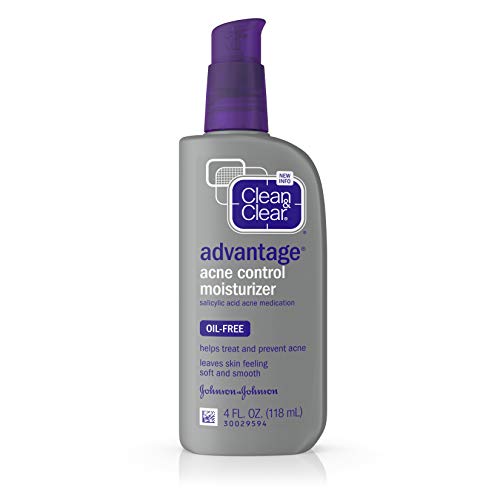
Understanding Breakouts
Before we dive into the benefits of facial oils, let’s first understand what causes breakouts. Breakouts occur when the pores on our skin become clogged with excess sebum, dead skin cells, and bacteria. This leads to the formation of blackheads, whiteheads, and pimples.
Sebum Production Balance
Contrary to popular belief, using facial oil does not directly cause an increase in sebum production. In fact, our skin naturally produces oil, known as sebum, to keep it moisturized and protected. However, when our skin becomes dehydrated or stripped of its natural oils, it compensates by producing even more sebum, which can lead to breakouts.
The Benefits of Facial Oils
Using the right facial oil can actually help balance sebum production, hydrate the skin, and prevent clogged pores. Here are some key benefits of incorporating facial oils into your skincare routine:
- Moisturization: Facial oils provide intense hydration to the skin, keeping it moisturized and preventing the overproduction of sebum.
- Regulation of Sebum Production: Certain facial oils, such as jojoba oil and tea tree oil, have a similar structure to our skin’s natural sebum. This similarity allows them to regulate sebum production and prevent excess oiliness.
- Antibacterial Properties: Some facial oils, like lavender oil and rosehip oil, have natural antibacterial properties that can help combat acne-causing bacteria.
- Anti-inflammatory Effects: Facial oils like chamomile oil and argan oil have anti-inflammatory properties, which can help reduce redness, inflammation, and the appearance of acne.
- Nourishment: Facial oils are packed with vitamins, antioxidants, and fatty acids that nourish and repair the skin, promoting a healthy complexion.
Choosing the Right Facial Oil
When selecting a facial oil for oily skin, it’s important to opt for non-comedogenic oils that won’t clog your pores. Here are a few examples of facial oils suitable for oily skin:
- Jojoba oil
- Tea tree oil
- Squalane oil
- Grapeseed oil
- Hemp seed oil
How to Incorporate Facial Oils into Your Routine
To effectively incorporate facial oils into your skincare routine, follow these simple steps:
- Cleanse: Start by cleansing your face with a gentle cleanser to remove any dirt or impurities.
- Tone: Use a toner to balance the pH of your skin and prepare it for the next step.
- Apply Facial Oil: Take a few drops of your chosen facial oil and gently massage it into your skin using upward motions. Focus on areas prone to breakouts, but don’t forget to cover the entire face.
- Lock in Moisture: If desired, you can follow up with a moisturizer to lock in the benefits of the facial oil.
- Sun Protection: Finally, don’t forget to apply sunscreen to protect your skin from harmful UV rays.
Benefits of Facial Oil for Oily Skin
Facial oil has long been associated with dry skin, but did you know that it can also be beneficial for oily skin? Contrary to popular belief, incorporating facial oil into your skincare routine can actually help balance oil production, provide hydration, nourishment, and protection to your skin without leaving it greasy or exacerbating oiliness. In this blog post, we will delve into the potential benefits of using facial oil for oily skin and address concerns about shine and makeup application.


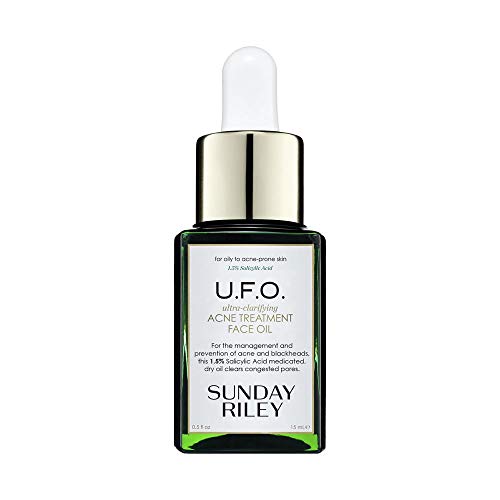
Hydration and Nourishment
One of the primary benefits of facial oil is its ability to provide hydration to the skin. Even oily skin needs hydration to maintain a healthy balance. When your skin is dehydrated, it can actually produce more oil to compensate for the lack of moisture, leading to increased oiliness and potential breakouts. Facial oils help to lock in moisture, preventing water loss and maintaining optimal hydration levels.
Additionally, facial oils are rich in essential fatty acids, vitamins, and antioxidants that nourish the skin. These nutrients help to repair the skin barrier, promote cell regeneration, and improve overall skin health. Some facial oils, such as jojoba oil and grapeseed oil, have been found to have anti-inflammatory properties, which can reduce redness and irritation often associated with oily skin.
Key benefits:
- Provides hydration to the skin
- Prevents water loss and maintains optimal hydration levels
- Nourishes the skin with essential fatty acids, vitamins, and antioxidants
- Repairs the skin barrier, promotes cell regeneration, and improves skin health
- Reduces redness and irritation
Balancing Oil Production
Contrary to what you might expect, facial oils can actually help balance oil production in oily skin. When the skin is stripped of its natural oils through harsh cleansers or overwashing, it can trigger the sebaceous glands to produce more oil, leading to increased oiliness. By applying a facial oil, you can provide your skin with the necessary oils it needs, signaling to the sebaceous glands that they don’t need to produce as much oil. This can help regulate oil production and reduce the greasy appearance of the skin.
It’s important to note that not all facial oils are suitable for oily skin. Look for lightweight oils, such as rosehip oil or squalane, which have a non-greasy texture and are easily absorbed by the skin. These oils won’t clog the pores or leave a heavy residue, making them ideal for oily skin types.
Key benefits:
- Balances oil production in oily skin
- Provides necessary oils to the skin, reducing the need for overproduction
- Regulates oil production and reduces the greasy appearance of the skin
- Look for lightweight oils, such as rosehip oil or squalane, for oily skin
Protection and Makeup Application
Another benefit of facial oil for oily skin is its ability to provide a protective barrier against external aggressors. Oily skin can still be prone to environmental damage, including pollution and UV rays, which can lead to premature aging and skin damage. Facial oils, especially those rich in antioxidants like argan oil or marula oil, can help neutralize free radicals and protect the skin from oxidative stress.
Additionally, using a facial oil as a primer before applying makeup can actually improve its application and longevity. Facial oils create a smooth canvas for makeup, allowing it to glide on effortlessly and preventing it from settling into fine lines or clinging to dry patches. They can also give the skin a healthy glow, enhancing the appearance and radiance of makeup.
Key benefits:
- Provides a protective barrier against environmental damage
- Rich in antioxidants to neutralize free radicals and protect against oxidative stress
- Use facial oil as a primer for improved makeup application and longevity
- Creates a smooth canvas for makeup, preventing it from settling into fine lines
- Gives the skin a healthy glow, enhancing the appearance and radiance of makeup
The truth about facial oil and its benefits for oily skin
In conclusion, facial oil is indeed suitable for oily skin, despite common misconceptions. By debunking these myths, we have revealed that facial oil can help regulate sebum production and provide necessary nourishment. It is crucial to select the appropriate facial oil and follow correct application methods. Seeking guidance from a skincare expert will help you find the ideal facial oil for your individual skin requirements.

Hey, I’m Ava Wilson—a skincare enthusiast and a certified esthetician. I’m dedicated to sharing my knowledge and empowering others to achieve healthy, glowing skin through simple, effective routines and natural remedies. Join me on this exciting skincare journey, and let’s unlock your skin’s potential for a confident, beautiful you.

